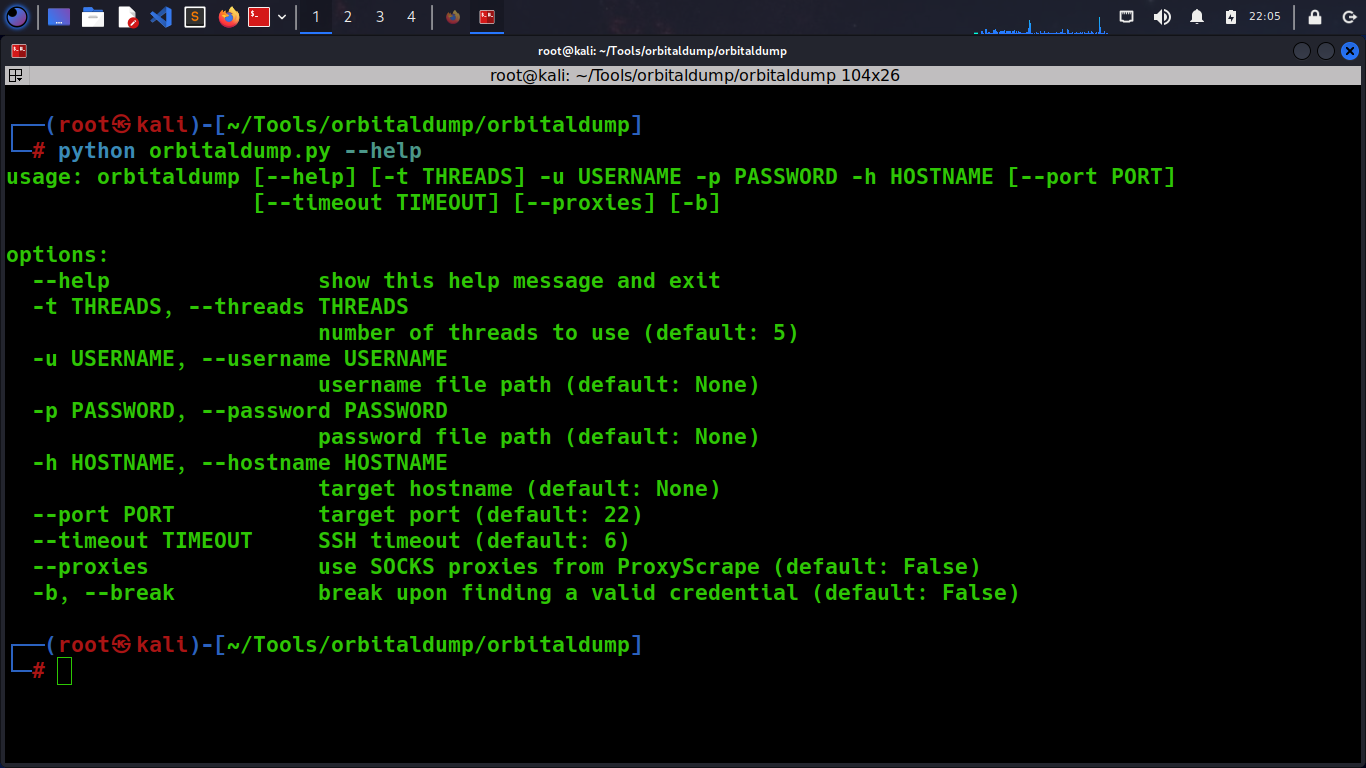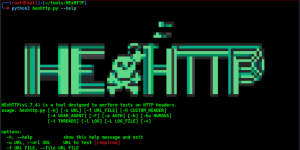Offensive Security Tool: OrbitalDump

Reading Time: 2 Minutes
OrbitalDump
OrbitalDump by k4yt3x is a simple multi-threaded distributed SSH brute-forcing tool written in Python. It also has a proxy mode enablement option for the red team, so that they can bypass various defensive mechanisms from account lockouts by changing the IP address.

See Also: So you want to be a hacker?
Offensive Security Courses
How it Works
When the script is executed without the –proxies switch, it acts just like any other multi-threaded SSH brute-forcing script. When the –proxies switch is added, the script pulls a list (usually thousands) of SOCKS4 proxies from ProxyScrape and launches all brute-force attacks over the SOCKS4 proxies so brute-force attempts will be less likely to be rate-limited by the target host.
Trending: Offensive Security Tool: Pycrypt
Trending: Digital Forensics Tool: Email Analyzer
Installation
You can install OrbitalDump through pip.
pip install -U --user orbitaldump
orbitaldump
Alternatively, you can clone this repository and run the source code directly.
git clone https://github.com/k4yt3x/orbitaldump.git
cd orbitaldump
python -m orbitaldump
Usages
A simple usage is shown below. This command below:
- -t 10: launch 10 brute-forcing threads
- -u usernames.txt: read usernames from usernames.txt (one username per line)
- -p passwords.txt: read passwords from passwords.txt (one password per line)
- -h example.com: set brute-forcing target to example.com
- –proxies: launch attacks over proxies from ProxyScrape
python -m orbitaldump -t 10 -u usernames.txt -p passwords.txt -h example.com --proxies
See Also: Write-up: Exploiting LFI Vulnerabilities
Full Usages
You can obtain the full usages by executing OrbitalDump with the --help switch. The section below might be out-of-date.
usage: orbitaldump [--help] [-t THREADS] [-u USERNAME] [-p PASSWORD] -h HOSTNAME [--port PORT] [--timeout TIMEOUT] [--proxies]
optional arguments:
--help show this help message and exit
-t THREADS, --threads THREADS
number of threads to use (default: 5)
-u USERNAME, --username USERNAME
username file path (default: None)
-p PASSWORD, --password PASSWORD
password file path (default: None)
-h HOSTNAME, --hostname HOSTNAME
target hostname (default: None)
--port PORT target port (default: 22)
--timeout TIMEOUT SSH timeout (default: 6)
--proxies use SOCKS proxies from ProxyScrape (default: False)
Clone the repo from here: GitHub Link









